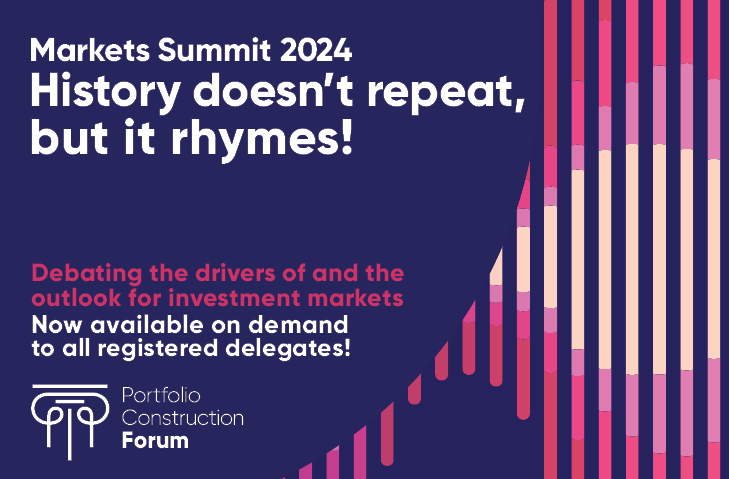At this year's China Development Forum - the highest-level annual meeting of senior Chinese policymakers and top CEOs, policymakers, and academics - discussion focused squarely on the risk of China falling into the middle-income trap.
There's much to learn from history, but every time is different when it comes to markets. The backdrop for investing will require investors to identify how the outlook today intersects with our experiences of the past and where it differs.
Second term presidents tend to be more ideologically aggressive, since they are freed from the need to face voters again. Investors globally need to think through the implications of a second term for either candidate.
With just about every equity index globally dominated by a handful of companies, indexed investors might soon discover they are overweight future failure.
In 1990, Towers Perrin started spruiking the modern-day investment mandate. I must admit the concept of making investment managers far more accountable seemed rather good. Unfortunately, it most likely left clients worse off.
We have entered a period of intensifying geopolitical rivalries and conflicts. If Donald Trump wins the US presidential election in November, the world will be even further destabilised.
By all means, discuss geopolitical events and the likely investment implications. But you should then completely ignore those discussions and consciously exclude geopolitics from your investment decision-making process.
We are in an investment environment like that of the pre-GFC period. Bonds will offer higher levels of both income and diversification, within a multi-asset portfolio.
Much of current economic and markets thinking is rooted in the post-GFC era. Practitioners need to let go of that history and embrace the fact that four trends are fundamentally changing the long-term outlook for markets.
Contrary to wide opinion, globalisation is not "history" but is being reinvented. For investors, a less interconnected world has significant implications for corporate capital expenditure and country allocation.
On the Hunt is a monthly lecture series focused on the human factors in investment portfolio construction, including the ethical implications. It will help you better identify and understand how investing biases, beliefs and behaviours impact portfolio construction practices - and therefore, investment outcomes - to help you build better quality investor portfolios.
What a difference a year makes. In February 2023, investors were preoccupied by the risks of rising inflation, monetary tightening and recession. This year, the focus is on disinflation, monetary easing and economic growth.
It's in the spirit of thinking differently and embracing uncertainty that I offer you this year's set of global developments to watch over the next five years.
Traditionally, these annual forecasts aim to predict near certainties. This year, the outlook seems a little clearer than it seemed in December 2002 – but not much.
Around this time a year ago, about 85% of economists and market analysts (including me) expected the US and global economy would suffer a recession. But the opposite mostly happened. One must approach any 2024 forecast with humility.
I was amazed several years ago to learn that the class I was teching believed that 90% of a fund's returns are due to asset allocation. Having once been a major promoter of this myth, it is important I contribute to its eradication.
Is there, as many predict, another financial crisis looming? The history of financial crises suggests that the preconditions are present. But this has been the case a few times since 2008. What is the reality?
This paper provides a comprehensive review of the psychology of attention and its relationship to key economic concepts (utility, risk-taking, social preferences, and learning), and the emerging role of AI in the modern economy.
This report summarises the key observations from ASIC's review of how issuers of investment products are meeting design and distribution obligations and areas for improvement.
What's new with our live and on-demand continuing education, accreditation and certification programs.
Led by behavioural finance expert, Herman Brodie, the Behavioural Finance - Investment Decision-Making course will help you identify, analyse and evaluate the principal human preferences that influence decision-making in situations of uncertainty, so you can recognise and identify these preferences in others, to improve investment decision-making.
















